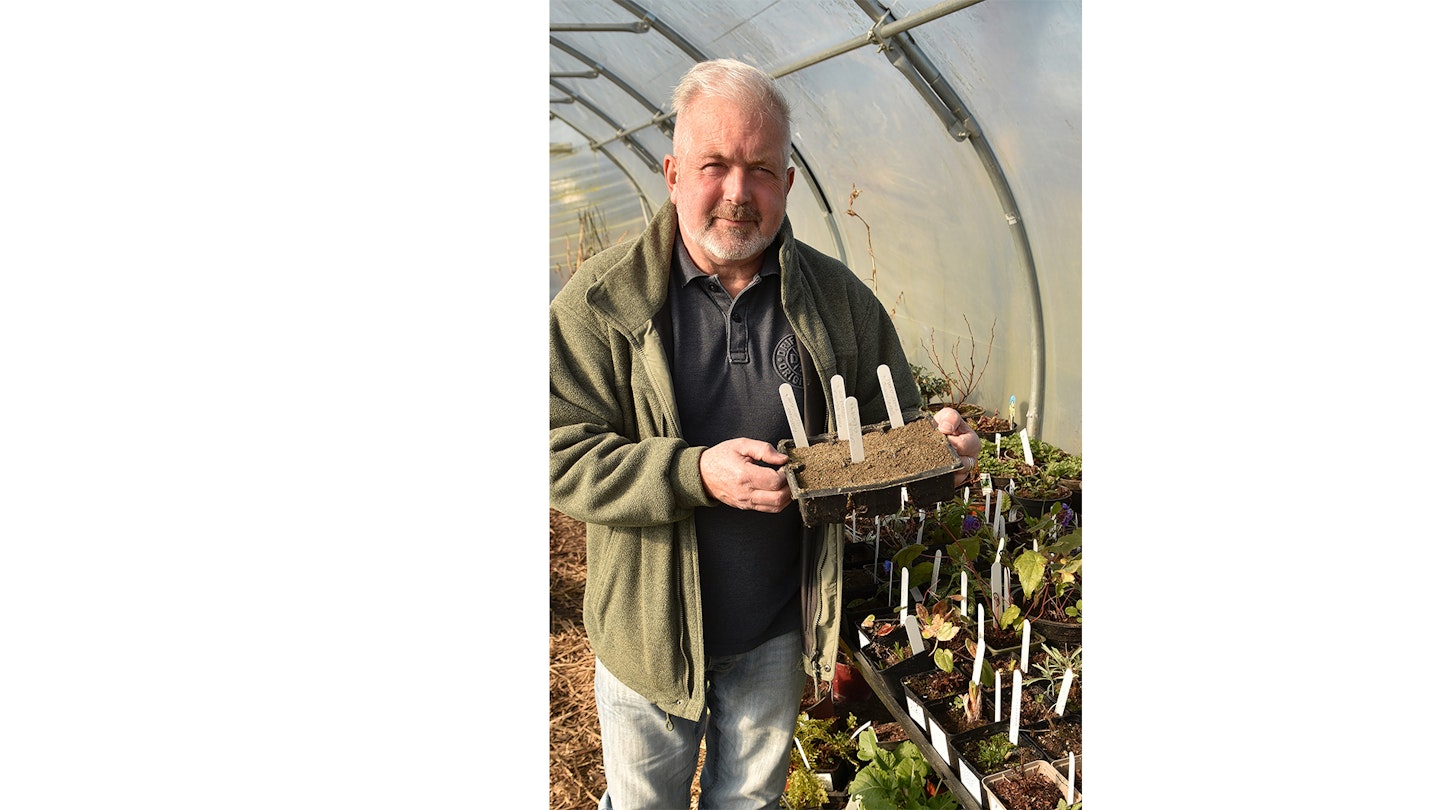Many of our favourite summer flowers are half-hardy annuals. These include asters, rudbeckias, zinnias and marigolds. They’re sown in gentle heat, either in a greenhouse or on the windowsill, so they’re growing rapidly by the time they can be planted out in May after the last frost, and then flower all summer.
They can be sown any time from now until late April. It’s best to start with those that take longer to reach flowering size, such as rudbeckias and salvias. Think about where you’ll grow them on because they need a lot of room once transplanted into trays and pots.
Most need a temperature of 18-21C (65-70F) to germinate so an unheated propagator on a windowsill is perfect. A shady windowsill or one not in full sun is best because temperatures can rocket under a plastic lid and, although this may not harm germination, it will cause seedlings to quickly become straggly. Remove the lid on sunny days, replacing it at night, to harden up the seedlings. Always use fresh compost and clean trays. Use tap water to prevent fungal diseases and water from below. Avoid misting seedlings or getting seedling foliage wet, which will encourage fungal problems.
See our step by step gallery below
How to sow half-hardy annuals
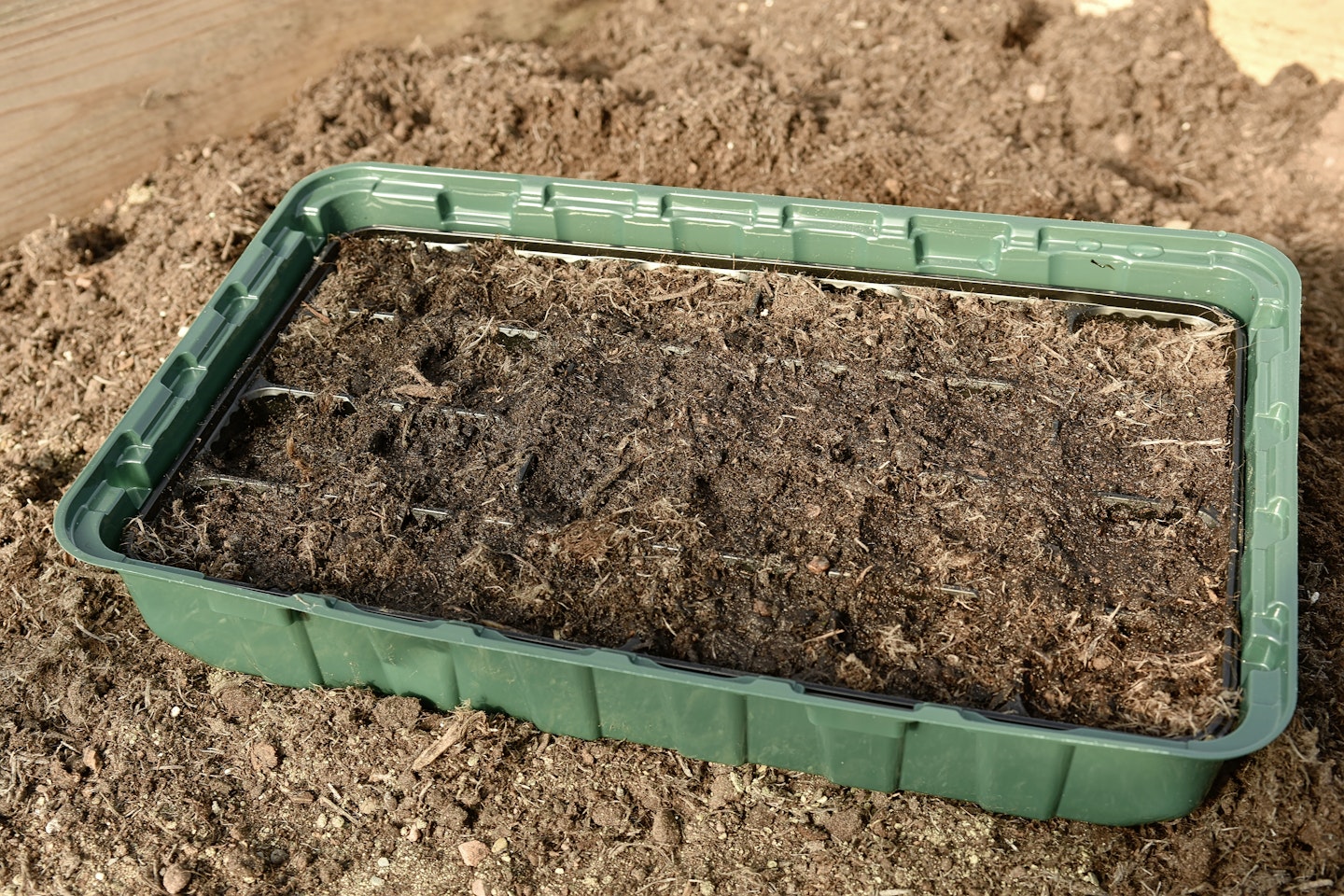 1 of 4
1 of 4Step one
Fill trays with compost and firm by tapping and shaking the tray. Soak the tray in water to moisten compost.
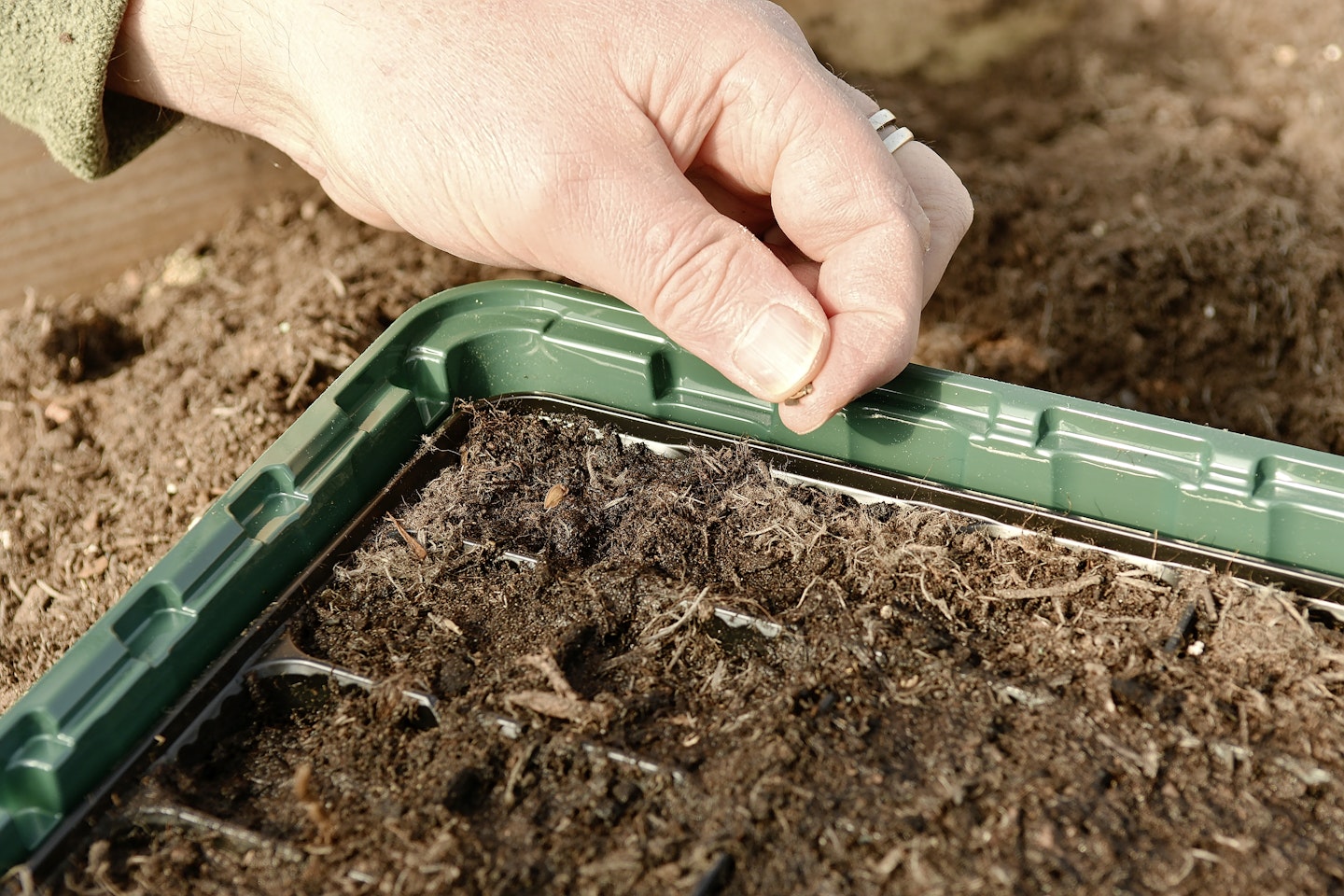 2 of 4
2 of 4Step two
Some seeds are large enough to sow in individual cells. Zinnias dislike transplanting so should be sown like this.
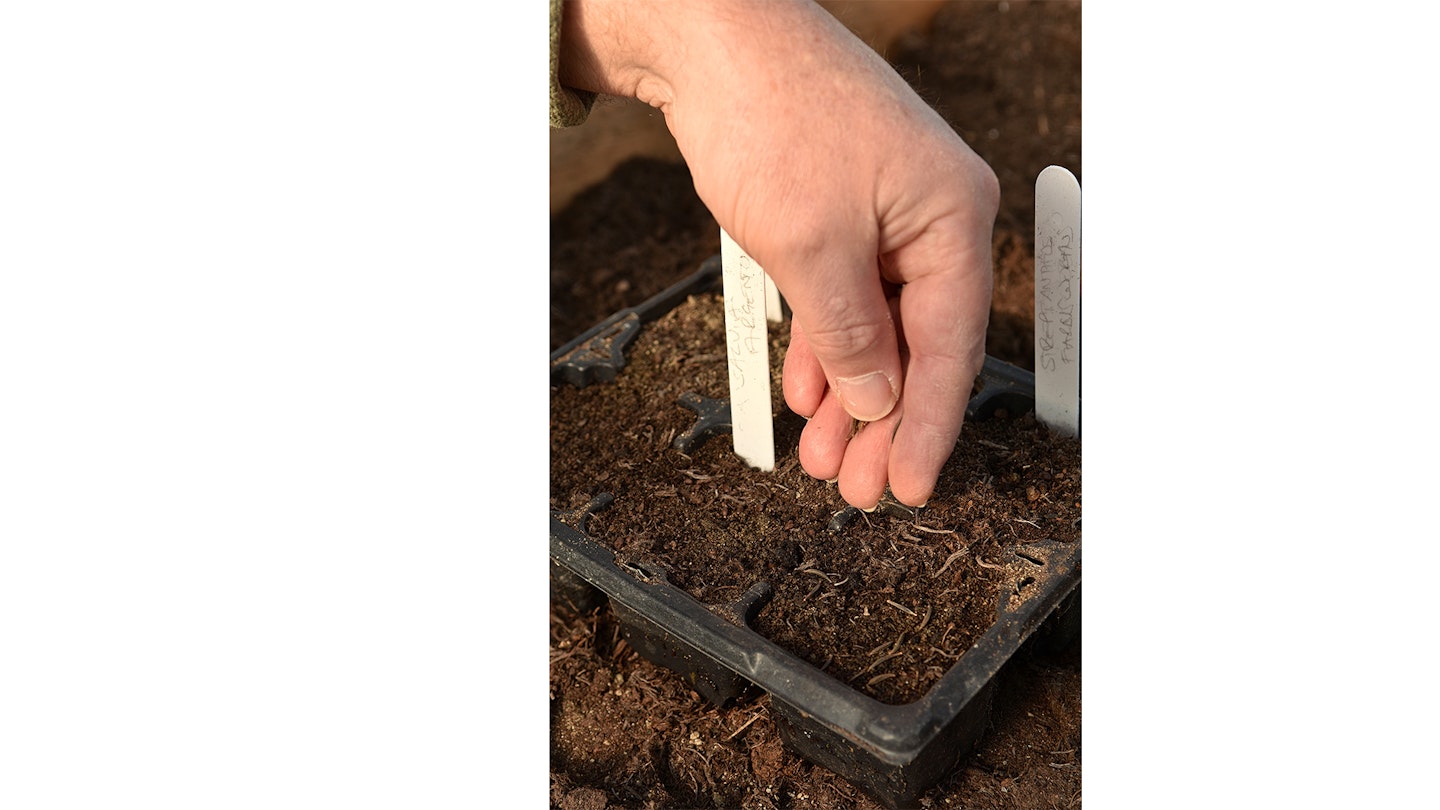 3 of 4
3 of 4Step three
Sow thinly on the surface of moist compost, trying to space the seeds evenly, using a second pot if needed.
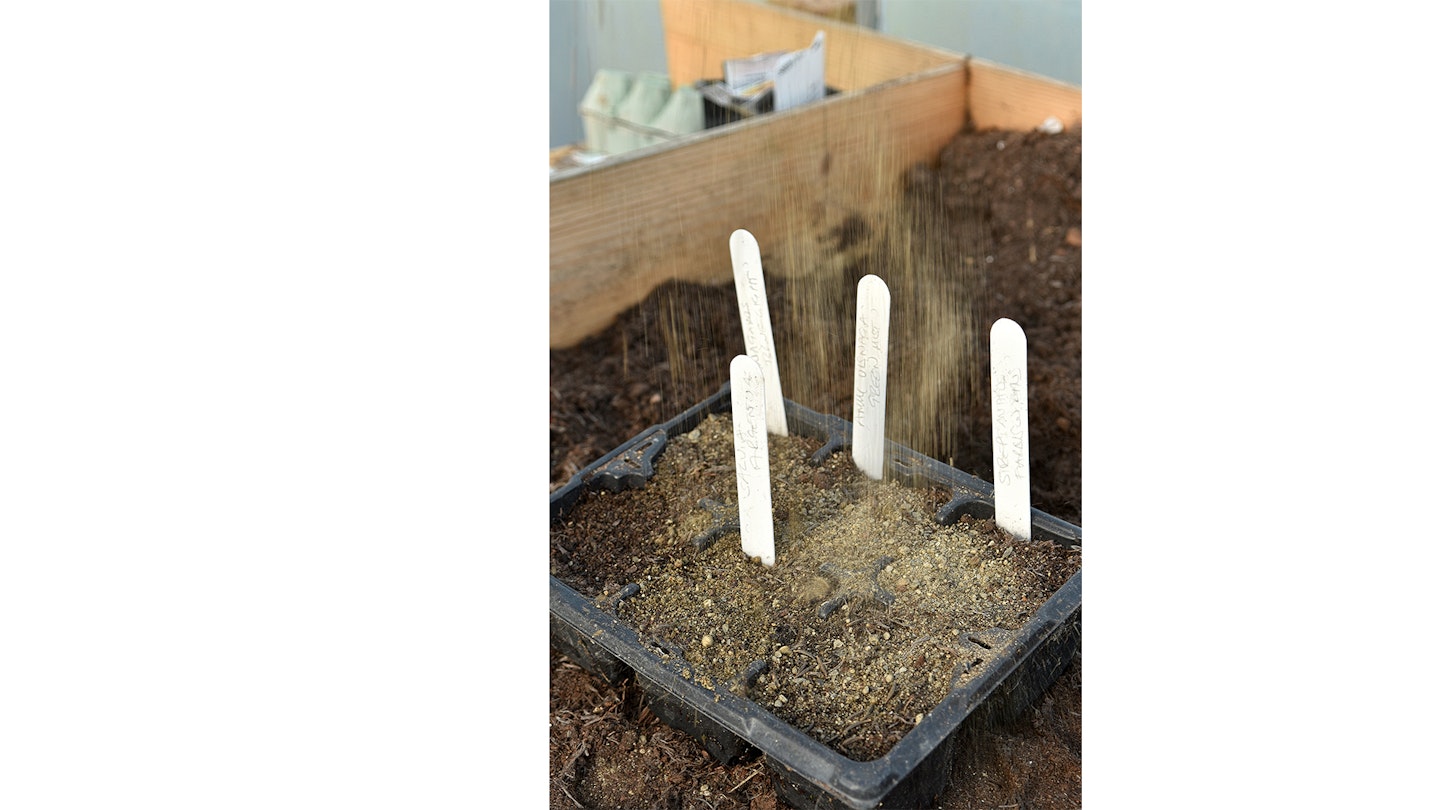 4 of 4
4 of 4Step four
Cover seeds with sieved compost, Perlite or sand. Don't cover deeply because some need light to germinate.
